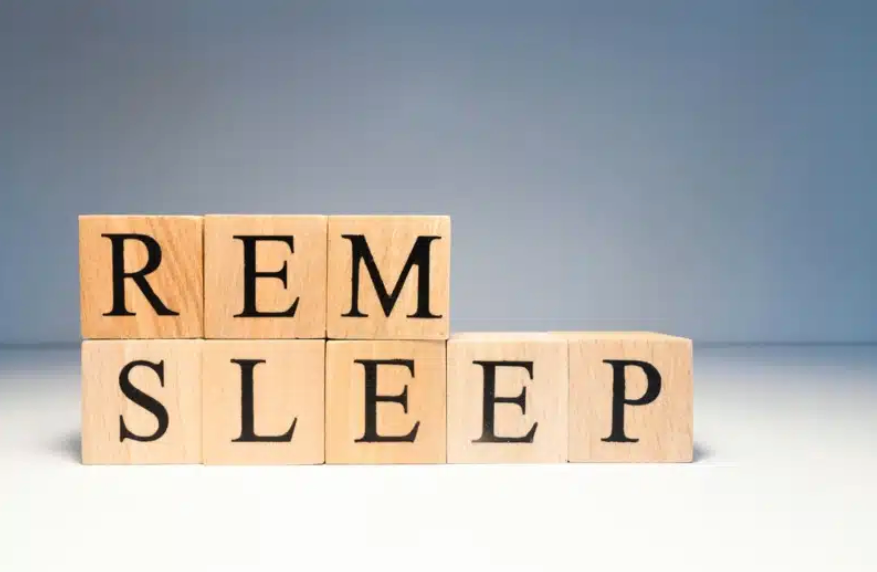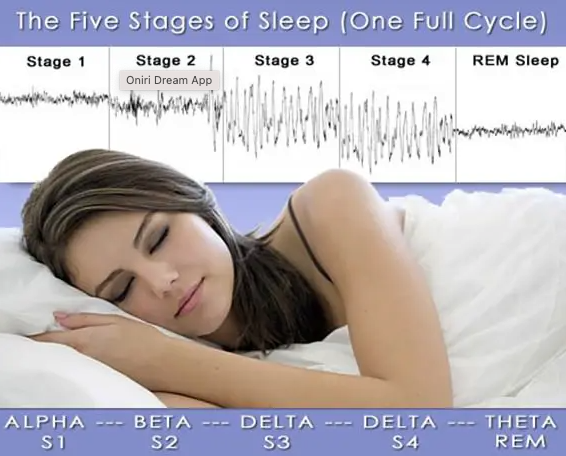Everyone requires a decent evening’s rest to recharge and get ready for the next day ahead. However, sleep apnea may hinder many people from obtaining enough. REM sleep is among the most crucial sleep stages in the night and it is most affected by repeated awakenings, and disruptions to sleep due to sleep apnea. If you’re suffering from the disorder and are concerned about the quality of your sleep it’s crucial to be aware of the amount of REM sleep you’re getting every night to help manage the symptoms and improve your overall health.
The research behind REM sleep
The REM sleep stage, commonly referred to in the context of “rapid eye movement,” is one of the four phases of the nightly cycle that focuses on the mental rehabilitation of the brain and recording the experiences from the day into memory. The cycle is followed by deep sleep, which offers physical rehabilitation to bones, muscles and the immune system. The REM sleep cycle is crucial for committing new information to memory and supporting the brain to develop in a healthy way. However, if the REM sleep time is disrupted or cut short, patients may frequently suffer from confusion, memory loss and emotional dysregulation.

The average person will spend 20 to 25% of their sleeping cycle in REM
There’s a scientific explanation to explain why you don’t begin dreaming as soon as your head is buried in the pillow! REM sleep typically begins about an hour into your night. It’s just 10 minutes during the first episode, and growing with each new cycle, with most intense night averaged at around an hour. If a typical adult is able to average 3 to 5 cycles each night, 20 to 25 percent of their sleep is required for REM during seven to eight hours in bed. It can vary based on the lifestyle, age and many other factors, but it is more so since REM intervals decrease as we age.
The effect of interrupted or shorter REM cycles
While a bad night’s sleep might not be detrimental to your overall health, missing more than two REM cycles could make you feel tired emotionally, confused, and disoriented. This is due to the fact that REM is essential for proper brain function, and even sleeping less could leave you feeling exhausted. Deprivation over time can lead to greater health risks as well as an increased risk of cardiovascular and non-cancer related deaths when in conjunction with other medical conditions. If you’re worried that you suffer from chronic deprivation of REM sleep, you need to be aware of the following symptoms and signs and talk about them with your physician:
FatigueDifficulty in concentrating or memory
The mood changes
Depression or anxiety
Headaches
High blood pressure
Cardiac problems

The research behind sleep cycles
Recognizing the effects apnea’s apnea causes on sleep patterns, as well as general health, can help those who suffer from the condition identify issues early and seek treatment faster and improve how they get REM sleep. Generally speaking, throughout the course of a night the body and brain go through a series of sleep cycles to heal from the day. It is a process that can be interrupted or completely missed by people suffering from apnea.
Stage one NREM, also known by the name light sleep typically lasts only 10 minutes.
When you first start to sleep you enter an infrequent period of sleep. In this point the brain’s activity is beginning to slow down, and are ready to rest for the night. If you wake up in this phase most likely, you’ll feel like that you didn’t sleep at all.
In the second stage of your sleeping cycle, the muscles relax and the brain’s slow-wave activity starts
The next phase of the cycle of sleep lasts about 25 minutes, as it prepares your body for a deep sleep. The heart rate, breathing, as well as brain waves will decrease at this point, lowering the body’s temperature, and easing the muscles.
If you are in deep sleep in the stage 3 of sleep, it may be difficult to get you up.
This portion of sleep is considered to be one of the most important restorative phases of sleep. The body repair damaged tissues, boosts your immune system and strengthens muscle and bone structure. The time you wake up will be more difficult, and could cause signs such as disorientation and fog of the brain. Based on your life style, age and other factors during the sleep phase, it could last from 30 to 60 minutes.

REM Sleep The last phase of your sleep cycle, can last for about 10 minutes
After approximately 90 minutes of going through the previous cycles of sleep the brain activity is again elevated in REM. The activity may surpass levels that are conscious in the daytime, but the muscles remain in a state of paralysis (apart from the respiratory system and eyes) to protect yourself from injury during sleep. It is possible to dream at this point. Unfortunately it is a typical phase for sufferers of sleep apnea to have breathing problems.
The complex relationship between apnea REM sleep
However, studies have revealed the connection between sleep apnea as well as the sleep stages that are more deep in cycles, revealing that the two just exacerbate the issues of Apena sufferers. Sleeping in REM, which happens in the fourth phase of sleep stimulates the muscles of the body to become relaxed, and prevents you from performing the nightmares that your brain as it ruminates through the experiences from the previous day. The deep relaxation may be too intense for the muscles of those airways in the upper part of your body, causing them to become more narrow and limiting breathing. Patients are often awake during this time which can disrupt their REM cycle and decreasing sleeping quality by causing the apnea process to continue.

